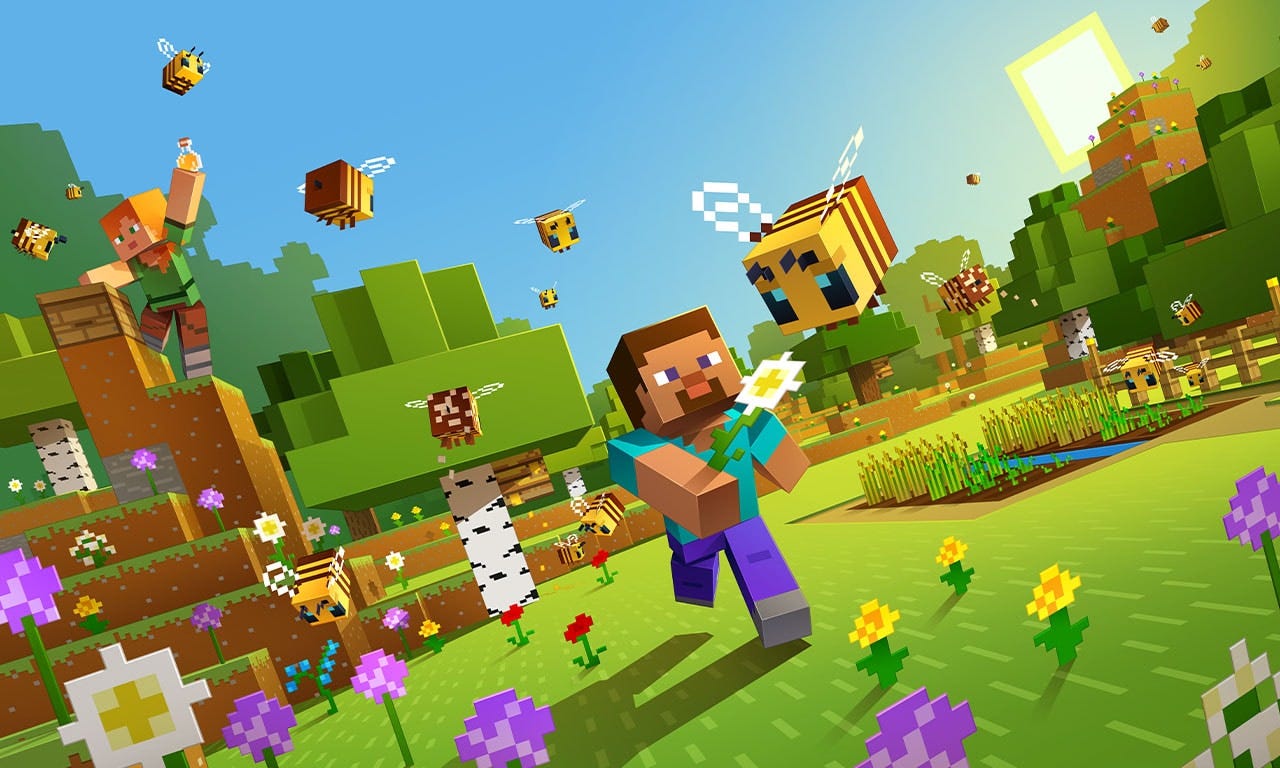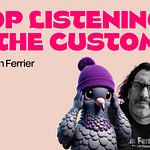We’re entering a world where one creative with the right tools (and taste) can whip up Super Bowl–level ads in an afternoon. Where fans are remixing your IP before your brand team even finishes the deck. Where AI-generated content racks up millions of views in hours.
This isn’t a distant future. It’s right now.
So what does that mean for us—the brand-builders?
From Control to Creation
The old way of branding was about control: define the logo, the tone, the palette, and enforce it across every touchpoint. The brand lived in the guidelines—and nowhere else.
But in today’s world, brands don’t live in PDF decks. They live in memes. In remix culture. In short films, community posts, UGC, and chaos. The distributed brand era as my coach Anna Keroulé calls it.
To thrive here, you don’t need to tighten control—you need to unleash your assets.
Give your brand a character. A world. A vibe (e.g. Vacation Inc).
Let go of rigid guidelines.
Invite people in.
Let them play.
Because the future of branding isn’t control. It’s collaboration.
Infinite Content, Finite Attention
The question is no longer can AI-generated content draw attention?
It absolutely can:
We’re not just competing with other brands—we’re competing with full-blown fictional universes on the one hand and content machines built for clicks on the other hand.
The problem is, most brands don’t have the time, money or skills needed to build IPs like Harry Potter or Marvel, and most brands also don’t want to harvest pure eyeballs as it doesn’t drive relevant awareness (see my point below).
So, how do brands stand out?
Entertainment First, Always
Brands can’t win on volume, nor on building the best IPs in the world (there are exceptions). They have to win on creativity.
Entertainment is the ultimate moat. Strong ideas, well-executed—regardless of whether they were made with AI, by an agency, or by a solo creator.
We’ve seen this idea backed by Science in the recent reports ‘The creative Divident’, Entertain or Die 2 and many more.
But how does it look like in AI-generated world? Perhaps PJ Ace’s recent ad for Kalshi is a good example—AI-assisted or not, it’s creative, surprising, and entertaining. It doesn’t ask for your attention, it earns it.
Strategy Reimagined: From Boxes to Sandboxes
But let’s be clear: this doesn’t mean strategy is dead. On the contrary:
Being known for something (aka salience or mental availability) still matters as much.
If your brand has no anchor, you're just another content machine hoping for eyeballs. That’s not sustainable unless you’re monetizing attention itself.
What needs to change is how we define brand strategy.
Not as a rigid rulebook, but as a sandbox.
A set of boundaries, not commandments.
A world of possibilities, with a few clear "don’ts."
Why define your brand too narrowly, when any customer can take your product, your founder, your story, and remix it into something new?
Instead, build a world so compelling that people want to play: players in Minecraft are not questioning the cubic world, it’s exactly what makes that universe fun (and very distinctive).
Make your sandbox more fun than the outside world.
The Role of the Brand-Builder
In this new world, the brand-builder isn’t just a designer or strategist. You’re a world-builder.
You craft the tone, invent the characters, spark the memes, and launch the vibes.
You don’t need full control—you need creative energy, cultural sensitivity, and a strong point of view.
Generative AI isn’t replacing us. It’s expanding what’s possible.
But the best tool in the world won’t help if you don’t have taste, guts, and a sense of play.
Final Thoughts
We’re leaving the age of strict, top-down brand management.
We’re entering the age of brand universes.
It’s a wild new world out there.
And I’m here for it.
What are your thoughts? Do you believe AI will change the way we build brands?
Disclaimer: Yes, this article does not contain the usual nuance, no, I’m not launching an AI start-up after this 😁.
















Share this post